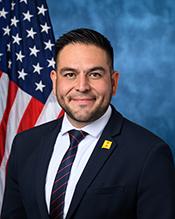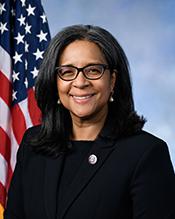0
Parity for Tribal Law Enforcement Act
11/9/2024, 1:58 AM
Summary of Bill HR 4524
The bill aims to provide tribal law enforcement agencies with the necessary resources and support to effectively carry out their duties and protect their communities. This includes increasing funding for training, equipment, and personnel, as well as improving coordination and communication between tribal and non-tribal law enforcement agencies.
Additionally, the Parity for Tribal Law Enforcement Act seeks to address the jurisdictional challenges that tribal law enforcement agencies often face when dealing with crimes that occur on tribal lands. The bill aims to clarify and strengthen the authority of tribal law enforcement agencies to investigate and prosecute crimes that occur within their jurisdictions. Overall, the Parity for Tribal Law Enforcement Act is a bipartisan effort to ensure that tribal law enforcement agencies have the resources and support they need to effectively serve and protect their communities. It is an important step towards addressing the disparities that exist between tribal and non-tribal law enforcement agencies in the United States.
Congressional Summary of HR 4524
Parity for Tribal Law Enforcement Act
This bill treats certain tribal law enforcement officers as federal law enforcement officers under specified circumstances.
Specifically, the bill authorizes the law enforcement officers of any Indian tribe that has contracted or compacted any or all federal law enforcement functions through the Indian Self-Determination and Education Assistance Act to enforce federal law within the tribe's jurisdiction if those officers meet certain qualifications. These qualifications include completing training and passing an adjudicated background investigation.
Further, the bill deems a tribal law enforcement officer who is acting under an authorized contract or compact as a federal law enforcement officer for the purposes of certain federal laws, including for injury and death, retirement, and pension benefits.
The Department of the Interior must (1) develop procedures for credentialing tribal officers to confirm these officers meet minimum certification standards and training requirements for Indian country peace officers, and (2) promulgate guidance to implement this bill.
The bill also requires the Department of Justice to coordinate and provide oversight for its functions and programs to ensure a coordinated approach for public safety in Indian communities.
Read the Full Bill
Current Status of Bill HR 4524
Bipartisan Support of Bill HR 4524
Total Number of Sponsors
1Democrat Sponsors
0Republican Sponsors
1Unaffiliated Sponsors
0Total Number of Cosponsors
38Democrat Cosponsors
18Republican Cosponsors
20Unaffiliated Cosponsors
0Policy Area and Potential Impact of Bill HR 4524
Primary Policy Focus
Native AmericansPotential Impact Areas
Alternate Title(s) of Bill HR 4524
Comments

Harmoni McMahon
1 year ago
I think this bill is good for tribal law enforcement but I'm not sure how it will work. Will it help tribes have more resources to keep their communities safe? Who benefits from this bill?

Matilda Strickland
1 year ago
What's this bill about again?

Cynthia Hartman
1 year ago
This bill bad for me and my state. It not fair to us.

Camille Maxwell
1 year ago
I'm all for this new bill for tribal law enforcement! It's about time they get the support they deserve. This will definitely make a positive impact on our tribal communities. #SupportTribalLawEnforcement #HR4524 #ParityAct





